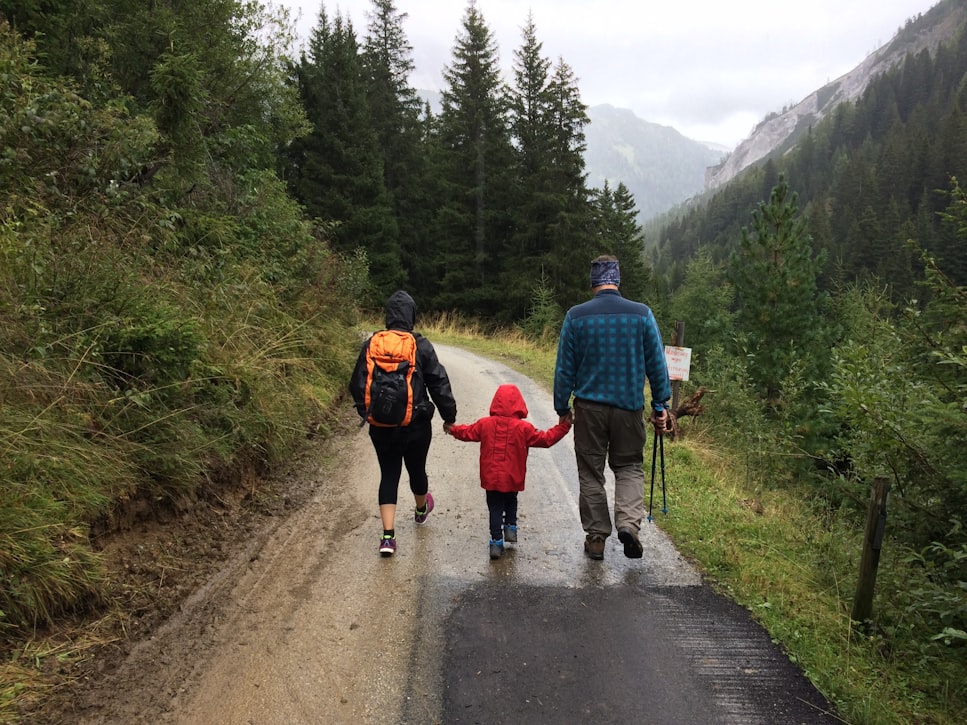Communication between the brain tumour patient and their family and friends (part 2)
In this post, I will be discussing the more intrinsic 'side-effects' that run alongside having a brain tumour. Some people may find this level of honesty triggering but I believe it is important to be honest with an audience who do not know what it's like to be the patient.
Scars and bald patches:
A lot of people who have had brain surgery will have a lifelong scar on their head; I have no doubt that you will have seen one before. Some are big and cover one side of the head to the other, some are small, some are healed and some are fresh wounds. A lot of people, like myself, are inoperable and do not bear one; but we may have a bald patch due to radiotherapy or various chemotherapy treatments.
Scar after care can be tricky sometimes: they can be itchy, dry, oozy, stretched, keloid, hypertrophic or even be numb. Some patients forget they have them and some just can't. Everyone' s healing process is different and this is why they vary so much in aesthetic. It also depends if staples were used vs sutures; every surgeon has a personal preference.
Bald patches occur for a number of reasons: most often radiotherapy destroys 2 areas of hair cells within the firing line of the high dose radiation as it needs an entry and exit point. That's why the baldness is exaggerated even if the tumour is small; this radiation has been much improved over the past ten years and we're seeing less hair loss now.
As well as this, chemotherapy destroys all rapidly growing/turning over cells; hair cells being a prime culprit. This usually grows back but may have a different texture to the hair you can remember having; this is because hair grows in cycles and it takes a long time for the cycles to regenerate the volume and texture potential, also it is too fresh to have sun damage or tinting. Due to these hair cycles, the hair tends to seem like it's falling out again and again over the years but that's just a new cycle starting.
As well as this, chemotherapy destroys all rapidly growing/turning over cells; hair cells being a prime culprit. This usually grows back but may have a different texture to the hair you can remember having; this is because hair grows in cycles and it takes a long time for the cycles to regenerate the volume and texture potential, also it is too fresh to have sun damage or tinting. Due to these hair cycles, the hair tends to seem like it's falling out again and again over the years but that's just a new cycle starting.
The important thing to acknowledge when seeing someone with a scar or bald patch is this: it tells their unique story, not yours! Whether it's covered or whether it's not covered is a personal choice: it might be unusual to see someone flaunting it with confidence, especially with today's "instagram” high standards of perfection, but try and take a leaf out of that patients book; this is real life.
I know a lot of people who love their big scars because it reminds them of their strength and actually, when I see a scar like this in public I'm reminded that I'm not alone in this journey: and that gives me confidence! Above is my beautiful friend Emeline who embraces her scar so elegantly!
I know a lot of people who love their big scars because it reminds them of their strength and actually, when I see a scar like this in public I'm reminded that I'm not alone in this journey: and that gives me confidence! Above is my beautiful friend Emeline who embraces her scar so elegantly!
So I say keep daring to show off your scars and bald patches! But I also say, if you don't want to, then that's absolutely fine too.
Symptoms you might not know that were happening:
I often describe having my brain tumour as having an invisible disability: despite so many fellow patients agreeing with me and some even having physical disabilities, the government doesn't seem to think too much of us, and many patients get no disability allowance.
In my survey, a lot of friends and family members didn't know all of the less common symptoms associated of having a brain tumour and subsequently didn't know how they could help their loved one: this often lead to isolation. This is what I want to change.
Fatigue:
My amazing friend and fellow Ambassador Ellen Mccrae described fatigue as: "a perpetual tiredness that cannot be refreshed by sleep." This was the first time I understood how it must feel to be fatigued and I hope that explanation helps you visualise that too. Fatigue is draining and can hit you at any time: it's extra annoying when it hits you during an event you've been planning for a long time! Give your friends and family who suffer from fatigue a break: it really cannot be helped. Gentle exercise, vitamin D and a balanced diet can help regulate it.
A lot of the medications we take have drowsy side effects but they are important for helping us with other things like controlling seizures, pain or swelling so we must take them despite the side effects. Our bodies are constantly trying to repair themselves and if we're on treatment our cells are taking part in an invisible war- it's tiring work!
Brain fog/memory/vision/speech issues:
Many patients with brain tumours have problems with memory, vision or a fuzzy brain fog sensation. Again, this varies amongst us and can come on all of a sudden or can be a chronic continuous issue. It may be irritating for a friend or family member to have to deal with this set of symptoms as it may feel like you're repeating yourself a lot or you have a sense that the patient isn't really 'present' a lot. I must say it takes a lot of energy and focus to draw yourself away from a brain fog episode or when your vision is going funny: so even though we seem vacant, we're trying really hard! Some patients don't feel like they can say when they're having a moment or that their memory isn't great as it causes embarrassment: please understand that we can't help it and use your kind words to offer empathy and reassurance; the more the patient panics about vision or memory the worse the symptoms can become. It feels like that moment where you're looking for a word but can't find it, and it's really frustrating as it's on the tip of your tongue but no matter what verbal cues you're given you can't get the word out. Having a brain tumour is full of heightened moments of frustration like this.
Field of vision may also be heavily affected by someone's brain tumour position. This means that even though they appear to be doing normal everyday things they can't see the full corner-to-corner field of vue. Again this is varied but that patient may also be coming to terms with their loss of a driving license. We just ask that you have some sensitivity with our vision: a lot of things can be disorientating or we can find ourselves walking into things that we didn't notice even if they're clear as day to you. If you don't treat us with respect it makes us not want to leave the house or join in with social activities!
Speech can be especially difficult for a lot of brain tumour patients and is of course heightened if memory ties in too. A lot of patients feel a large amount of self consciousness when it comes to speaking and may be going through speech therapy to improve their confidence. Try to really listen to us when we have something to say, looking at the lips to lip read can help; if there's something you haven't quite understood please ask us to repeat it instead of pretending to of heard! Paralysis is really scary by itself but when it affects the communication tool of speech it truly strips you of something simple that you took for granted. Although it makes you empathetic for those who English is a second language!
A lot of the medications we take have drowsy side effects but they are important for helping us with other things like controlling seizures, pain or swelling so we must take them despite the side effects. Our bodies are constantly trying to repair themselves and if we're on treatment our cells are taking part in an invisible war- it's tiring work!
Brain fog/memory/vision/speech issues:
Many patients with brain tumours have problems with memory, vision or a fuzzy brain fog sensation. Again, this varies amongst us and can come on all of a sudden or can be a chronic continuous issue. It may be irritating for a friend or family member to have to deal with this set of symptoms as it may feel like you're repeating yourself a lot or you have a sense that the patient isn't really 'present' a lot. I must say it takes a lot of energy and focus to draw yourself away from a brain fog episode or when your vision is going funny: so even though we seem vacant, we're trying really hard! Some patients don't feel like they can say when they're having a moment or that their memory isn't great as it causes embarrassment: please understand that we can't help it and use your kind words to offer empathy and reassurance; the more the patient panics about vision or memory the worse the symptoms can become. It feels like that moment where you're looking for a word but can't find it, and it's really frustrating as it's on the tip of your tongue but no matter what verbal cues you're given you can't get the word out. Having a brain tumour is full of heightened moments of frustration like this.
Field of vision may also be heavily affected by someone's brain tumour position. This means that even though they appear to be doing normal everyday things they can't see the full corner-to-corner field of vue. Again this is varied but that patient may also be coming to terms with their loss of a driving license. We just ask that you have some sensitivity with our vision: a lot of things can be disorientating or we can find ourselves walking into things that we didn't notice even if they're clear as day to you. If you don't treat us with respect it makes us not want to leave the house or join in with social activities!
Speech can be especially difficult for a lot of brain tumour patients and is of course heightened if memory ties in too. A lot of patients feel a large amount of self consciousness when it comes to speaking and may be going through speech therapy to improve their confidence. Try to really listen to us when we have something to say, looking at the lips to lip read can help; if there's something you haven't quite understood please ask us to repeat it instead of pretending to of heard! Paralysis is really scary by itself but when it affects the communication tool of speech it truly strips you of something simple that you took for granted. Although it makes you empathetic for those who English is a second language!
Mental Health Issues
So much about the body is shifted when you receive a monumental diagnosis and we all deal with things differently; some better than others. The physical body can change so much; some medications like chemo and steroids can cause rapid weight gain or loss and neither can be helped. You could even be left with post-operative diabetes insipidus! This is really hard to cope with on top of everything else. It can feel embarrassing to go out for dinner and have no appetite or vice versa it can feel awkward to go out when you look dramatically different to what you did a few weeks ago. It's a lot to process for us so please offer support where possible; inside we are still the same person! We're all on our own individual journey.
We all have different levels of mental agility whether you're a brain tumour patient or not. I believe mine is quite high as I've been in nursing for 5 years so I've seen a lot of positive stories but a lot of patients sink down into a deep depression and can isolate themselves or cause a breakdown in their relationships. Nobody is doing this on purpose. We might be a lot to put up with but sometimes that can be the brain tumour speaking! I know I've had terrible mood issues and upon reflection knew that it wasn't truly me.
There have been times where I was out enjoying an event with friends and I remember my diagnosis and have to go and have a quiet cry in a corner until I pull myself out of the wave of sadness. Allowing yourself to be upset and be happy whenever you feel either of these things is really important for self-care but so is finding support when you need it.
Whether you're a patient or carer or friend The Brain Tumour Charity is there for everybody. They have a free Hotline that anybody can call for support.
By 2020 I am aiming to have raised £5000 for The Brain Tumour Charity to help #FindACureSooner and ensure continued support and readily available resources for patients and families of those who have Brain Tumours. Please click on the link and donate, if all of my readers donated £1 I would have met my target already! https://www.justgiving.com/fundraising/moneyforbrains
There have been times where I was out enjoying an event with friends and I remember my diagnosis and have to go and have a quiet cry in a corner until I pull myself out of the wave of sadness. Allowing yourself to be upset and be happy whenever you feel either of these things is really important for self-care but so is finding support when you need it.
Whether you're a patient or carer or friend The Brain Tumour Charity is there for everybody. They have a free Hotline that anybody can call for support.
By 2020 I am aiming to have raised £5000 for The Brain Tumour Charity to help #FindACureSooner and ensure continued support and readily available resources for patients and families of those who have Brain Tumours. Please click on the link and donate, if all of my readers donated £1 I would have met my target already! https://www.justgiving.com/fundraising/moneyforbrains






Thanks For Sharing his nice post. Read Our Article in Fitness And Health Releted.
ReplyDeleteOverall Wellness